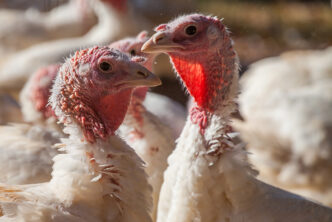A 4-year-old horse in Pickens County tested positive for West Nile virus and was euthanized, according to Clemson University Livestock-Poultry Health officials.
This was the second known case of the disease in South Carolina this year. The first case was reported in January in Charleston County. Both horses were unvaccinated. The horse had no pasture mates.
“This most likely is an unfortunate side effect of the rain from Debby and Helene, which left long-term standing water in places, allowing mosquitoes to multiply exponentially,” said Sean Eastman, director of field services and equine program lead at Clemson Livestock-Poultry Health.
The diagnosis was confirmed after blood samples were submitted to the National Veterinary Services Laboratories and tested positive for the virus on Oct. 18.
“South Carolina is a wet, warm state in normal circumstances, but water remaining from recent storms makes our horses particularly susceptible to mosquito-borne diseases. That’s why it is so important for horse owners to work with a veterinary professional to follow a clear-cut vaccine schedule,” said Michael Neault, South Carolina state veterinarian and director of Clemson Livestock-Poultry Health.
While horse owners can take measures such as bringing horses in at dawn and dusk and using spray repellents, vaccination is the only surefire way to protect horses from Eastern equine encephalitis (EEE), West Nile virus, and rabies.
Borne by mosquitoes, EEE and West Nile virus have a high mortality rate in infected, unvaccinated horses — 30 to 40% for West Nile and 90% for EEE. However, widespread vaccination has kept the number of cases comparatively low in South Carolina compared to nearby states.
Mosquito control is also an important precaution. Both EEE and West Nile virus are maintained in nature through a cycle involving the freshwater swamp mosquito, Culiseta melanura, commonly known as the black-tailed mosquito.
The EEE and West Nile viruses are fast-acting. Symptoms usually develop two to five days after exposure and include neurologic difficulties such as stumbling, circling, head pressing, depression or apprehension, weakness in the legs, partial paralysis, inability to stand, muscle twitching, or death.
In addition to EEE and West Nile, other neurologic diseases, including rabies and EHV-1, can infect horses. According to state law, any livestock displaying neurologic symptoms — stumbling, circling, head pressing, depression or apprehension — must be reported to the state veterinarian at 803-788-2260 within 48 hours.
A list of reportable diseases and other resources is available on the Livestock-Poultry Health website at clemson.edu/public/lph/ahp/reportable-diseases.







